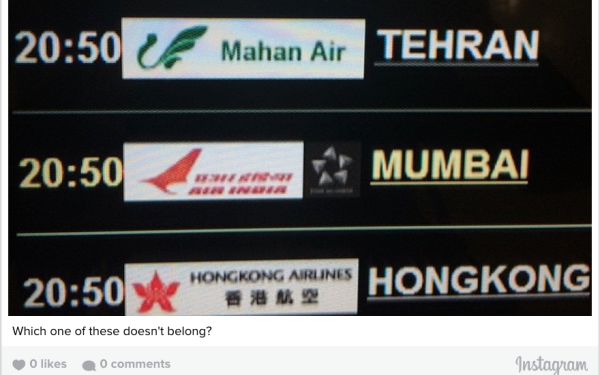How I Became a “Volunteer Fed”
You may remember a minor uproar several months ago surrounding a newly imposed and quickly retracted policy at the University of Massachusetts-Amherst dealing with Iranian students’ studies. UMass decided that U.S. sanctions required it to prohibit Iranian students from certain science and engineering courses. A public relations nightmare ensued, after which the university retracted the policy. In the last week, UMass has come out with a revised policy that seems to strike a good balance.
Under the new policy, UMass officials will inform all international students of the impact of U.S. sanctions programs on their ability to secure visas for specific areas of study. UMass departments covering science, technology, engineering and mathematics fields will also require students to file a “research statement” prior to any international travel. Most interesting, UMass will require faculty and graduate students, as well as undergraduates funded by sponsored research in a number of technical fields to annually to receive and certify training in export control laws.
I had the misfortune of stepping into this drama early on, when I received an inquiry from an UMass professor concerned about the new policy. In a series of emails I explained that the university was not totally out of line in being concerned that allowing Iranian students to study in fields that they were not permitted to study under visa rules established by § 501 of the Iran Threat Reduction and Syria Human Rights Act (“TRA”). Pursuant to § 501, individuals ordinarily resident in Iran s are ineligible for an education-related visa in order to pursue coursework intended “to prepare the alien for a career in the energy sector of Iran or in nuclear science or nuclear engineering or a related field in Iran.”
Under 31 C.F.R. § 560.505 Iranians in the United States are only authorized to engage in activity authorized by their visa. The university therefore had a reason to be concerned that Iranian students studying in certain fields could be acting outside the scope of their visa. This is in addition to prohibitions on the release of certain technology or software controlled by the Export Administration Regulations (“EAR”). While totally banning these students was probably overkill, I did not believe UMass was crazy for reaching the conclusions they did, particularly since it did not appear they had actually consulted with the Office of Foreign Assets Control (“OFAC”).
Thankfully, this professor was kind enough to inform me indirectly that I was mistaken in my belief that I was providing a service through my attempts to explain the oft-murky realm of sanctions. Little did I know that all this time that I was actually operating as a “Volunteer Fed” and “bottom-feeder” perpetuating a repressive system reminiscent of McCarthyism. This raises an interesting question however: by participating in sanctions training, are UMass faculty and students also complicit?



